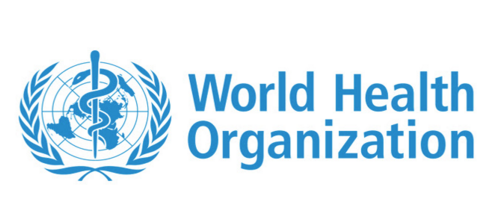WHO Director−General’s opening remarks at the media briefing on COVID−19 – 1 February 2021

- For the third week in a row, the number of new cases of COVID-19 reported globally fell last week. There are still many countries with increasing numbers of cases, but at the global level, this is encouraging news.
- Today, WHO launched the SCORE global report on health data systems and capacity, which provides a snapshot of the state of health information systems around the world. This is the first report of its kind, covering 133 country health information systems and about 87% of the world’s population.
- I’m honoured to be joined by two of the biggest names in world football: Gianni Infantino, the President of FIFA; and Michael Owen, one of the most prolific strikers of the past 20 years, who won the Ballon d’Or for the world’s best player in 2001. Gianni and Michael have joined us today to support the “ACT Together” campaign, to promote equitable access to COVID-19 vaccines, treatments and diagnostics as part of a comprehensive approach to controlling the pandemic.
—————————————————————————
Good morning, good afternoon and good evening.
For the third week in a row, the number of new cases of COVID-19 reported globally fell last week.
There are still many countries with increasing numbers of cases, but at the global level, this is encouraging news.
It shows this virus can be controlled, even with the new variants in circulation. And it shows that if we keep going with the same proven public health measures, we can prevent infections and save lives.
However, we have been here before. Over the past year, there have been moments in almost all countries when cases declined, and governments opened up too quickly and individuals let down their guard, only for the virus to come roaring back.
As vaccines are rolled out, it’s vital that all of us continue to take the precautions to keep ourselves and each other safe. Be a role model.
It is vital that governments enable people to make the right choices, whether it is making quarantine easier to adhere to, or making workplaces safer.
Controlling the spread of the virus saves lives now, and saves lives later by reducing the chances of more variants emerging.
And it helps to ensure vaccines remain effective.
===
The COVID-19 pandemic has created an unprecedented demand for high-quality health data.
Timely, reliable and actionable data is essential for governments and health providers to make the best decisions to promote and protect health.
The pandemic has pushed even some of the most advanced health information systems around the world to the limit, as they try to keep track of COVID-19 on top of other health priorities.
Strengthening health information systems is an important part of WHO’s work, for detecting and responding rapidly to alerts and outbreaks, as well as many other health threats.
Today, WHO launched the SCORE global report on health data systems and capacity, which provides a snapshot of the state of health information systems around the world.
This is the first report of its kind, covering 133 country health information systems and about 87% of the world’s population.
It assesses countries according to the five aspects of SCORE: Survey, Count, Optimize, Review and Enable.
The report shows that globally, 4 in 10 deaths remain unregistered.
This highlights the urgent need for investments to strengthen health information systems in all countries, to support the COVID-19 response and recovery, and progress towards universal health coverage and the Sustainable Development Goals.
This report doesn’t only identify the problem; it also offers solutions. The SCORE package is a set of tools that I call on all countries and partners to use to urgently address the data gaps.
We can only make progress if we measure progress.
We would like to thank all the countries who contributed to the report, and our partners including Bloomberg Philanthropies for their support.
===
Strengthening health information systems has been a key part of WHO’s transformation process over the past three and a half years.
Another key part of that process has been a new approach to partnerships.
WHO recognizes that we can only achieve our ambitious goals by working with organizations who reach audiences we traditionally haven’t.
Last year, WHO entered a new partnership with FIFA, to leverage the enormous power of football to promote health.
FIFA has been a strong supporter of global efforts to protect football fans from COVID-19.
Last year, FIFA contributed US$10 million to the COVID-19 Solidarity Response Fund, and conducted several campaigns to raise awareness of how to stay safe from the virus, be physically active and to stop violence against women.
Today I’m honoured to be joined by two of the biggest names in world football: Gianni Infantino, the President of FIFA; and Michael Owen, one of the most prolific strikers of the past 20 years, who won the Ballon d’Or for the world’s best player in 2001.
Gianni and Michael have joined us today to support the “ACT Together” campaign, to promote equitable access to COVID-19 vaccines, treatments and diagnostics as part of a comprehensive approach to controlling the pandemic.
Gianni, thank you and welcome once again. You have the floor.
[GIANNI INFANTINO ADDRESSED THE MEDIA]
Thank you Gianni, and thank you for your continued partnership and support.
Now it gives me great pleasure to introduce Michael Owen, who scored more than 400 goals in a 17-year career for club and country.
Michael, it’s an honour to have you with us today. Over to you.
[MICHAEL OWEN ADDRESSED THE MEDIA]
Thank you Michael, and thank you for using your voice and influence to support the ACT Together campaign.
If there’s one thing we’ve all learned in the past year, it’s that when we act alone, we’re vulnerable, but when we act together, we can save lives.
Fadela, back to you.





